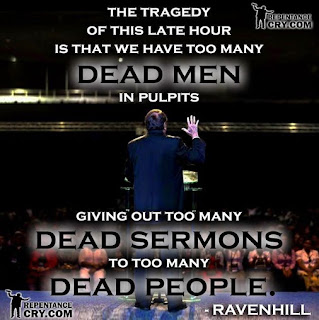Never
Giving Up Hope
[2nd
Corinthians chapter4]
In
this week's Bible study we will be completing chapter four in Second
Corinthians. At the close of last week's study the apostle Paul wrote
of reflecting the glory of God – not through ourselves and being
reflected back to the Lord, but by allowing God to shine His eternal
light through us towards others. By doing so, everyone can see the
habitation of the Holy Spirit within us and be so compelled to
gravitate towards God, allowing Him to permeate our lives as He adds
daily to the number of those who believe in His Son and so be saved
by Him. Paul continues this train of thought in chapter four,
beginning at verse one.
“Therefore,
since through God's mercy we have this ministry, we do not lose
heart. Rather, we have renounced secret and shameful ways; we do not
use deception, nor do we distort the Word of God. On the contrary, by
setting forth the truth plainly we commend ourselves to every man's
conscience in the sight of God. And even if our gospel is veiled, it
is veiled to those who are perishing. The god of this age has blinded
the minds of unbelievers, so that they cannot see the light of the
Gospel of the glory of Christ, who is the image of God. For we do not
preach ourselves, but Jesus Christ as Lord, and ourselves as servants
for Jesus' sake. For God, who said, 'Let light shine out of
darkness', made His light shine in our hearts to give us the light of
the knowledge of the glory of God in the face of Christ.” (2
Corinth. 4, verses 1-6, NIV)
When Paul wrote that he did “not use deception, nor
do we distort the Word of God...”, I'm fairly sure that he was
referring to an age-old problem within the Christian faith at large –
that of pastors, evangelists and “teachers” who turn their
churches or their ministries into cults of personalities surrounding
themselves. I'm not going to delve into this matter today except to
say that those who are in such positions of leadership within the
Body of Christ will be held to a higher standard than many of the
rest of us Christians when it is their turn to stand before God and
give an account of themselves and of what they did – or failed to
do – in their lives and in His service. Paul then goes on by
referring back to something he wrote in what is now called chapter 3,
the “veil”. You will recall from last week's lesson that Paul was
referring to the veil in the inner sanctuary in the Temple at
Jerusalem that covered that Ark of the Covenant, and how it was torn
in two during a powerful earthquake that happened at the moment of
Christ's death on the cross. He went on to compare that veil to one
that was on the minds of those who refused to believe in the death
and resurrection of Jesus Christ.
There are some people that have their vision and their
minds obstructed with regard to the saving power of Christ. The Bible
says that these kinds of people have hardened their hearts and closed
their minds, not just when it comes to belief in Jesus, but in their
dealings with all other people as well. As far as they are concerned,
they are at the center of their own little universe, being either
uncaring or oblivious towards others. Instead, they are focused on
the acquisition of financial “success” and material gain solely
for their benefit. That, my dear readers, is no way to live your
life. In fact, that's not a life at all, it is merely an existence,
an existence devoid of all feeling in a universe of singularity while
denying the interconnection of humanity. Having said that, let us now
continue at verse 7.
“But
we have this treasure in jars of clay to show that this
all-surpassing power is from God and not from us. We are hard-pressed
on every side, but not crushed; perplexed but not in despair;
persecuted, but not abandoned; struck down, but not destroyed. We
always carry around in our body the death of Jesus, so that the life
of Jesus may also be revealed in our body. For we who are alive are
always being given over to death for Jesus' sake, so that His life
may be revealed in our mortal body. So then, death is at work in us,
but life is at work in you.” (2 Corinth. 4, verses 7-12, NIV)
As
you can clearly see from these verses, Paul had different flourishes
within his writings that are very reminiscent of inspirational
speakers of the 20th
and 21st
centuries, such as Les Brown, Dale Carnegie, and Zig Ziglar, to name
a few. These gentlemen, for whom I have the utmost respect, do not
have a monopoly on maintaining a positive mental attitude. It is a
way of thinking that originates from the Bible, such as the passage
above, where Paul writes, “We
are hard-pressed on every side, but not crushed; perplexed but not in
despair; persecuted, but not abandoned; struck down, but not
destroyed.”
Paul was telling the Corinthian congregation that in spite of all he
endured for the sake of the preaching of the gospel, every time he
got knocked down he immediately got back up again and continued his
journey through life as a minister of and a believer in Jesus Christ,
and that they should emulate his example as they endured the
persecution that the early church was undergoing at the time. This in
turn was inspired by the teaching of Jesus at the Sermon on the Mount
in the gospel of Matthew, chapters 5, 6, and 7, when He said, “Seek
and you shall find; knock, and the door will be opened; ask, that you
may receive”.
If you don't ask, you'll never find the help you need to succeed in
life. If you're looking for a doorway to your dreams, start knocking
on doors. You'll never find what you are looking for in life if you
never start looking. So obvious, so simple, and yet so completely
ignored by so many people! Never allow yourself to fall into this
trap, the snare of being powerless to act due to a fear of failure.
Remember that making mistakes is how we learn. There is no
substitute. Besides, we only have to succeed really big just once in
life. Let's now continue at verse 13.
“It
is written, 'I believed, therefore I have spoken'. With that same
spirit of faith we also believe and therefore speak, because we know
that the one who raised the Lord Jesus from the dead will also raise
us with Jesus and present us with you in His presence. All this is
for your benefit, so that the grace that is reaching more and more
people may cause thanksgiving to overflow to the glory of God.
Therefore we do not lose heart. Though outwardly we are wasting away,
yet inwardly we are being renewed day by day. For our light and
momentary troubles are achieving for us an eternal glory that far
outweighs them all. So we fix our eyes not on what is seen, but on
what is unseen. For what is seen is temporary, but what is unseen is
eternal.” (2 Corinth. 4, verses 13-18, NIV)
The
quote the apostle Paul is referring to above is from Psalm 116, verse
10. He is illustrating himself to the Corinthian church as having the
faith of King David of Jerusalem. As David spoke and believed, so
Paul also spoke to the early church and believed it as a continuity
of Temple leadership, except that each of us is now a temple unto the
Lord, giving Him glory and thanksgiving and praise every waking
moment of our lives. “We
fix our eyes not on what is seen, but on what is unseen.”
The Temple at Jerusalem no longer exists, but the Temple of the Lord
can still exist spiritually inside of each of us. That is certainly
the case with me, and I can say from experience that it has made all
the difference in the world in my life. Focus on the spiritual, what
is unseen by the naked eye. Focus on Jesus, living each day as if He
was right beside you, because He really is. Reject material
possessions and excessive personal wealth, what we can see and touch,
because the pursuit of these things is an empty, pointless and
uncaring existence. Nobody wants to be a shallow person, having a
glossy exterior but lacking substance within them. God has empowered
each of us to “be all that we can be”, just like that old TV
commercial, except that when we do so we become soldiers in God's
army, not the US Army. Let's all begin to learn to follow Paul's
example as he followed that of Jesus Christ and King David, giving
our very best for God and His army each and every day of our lives.





